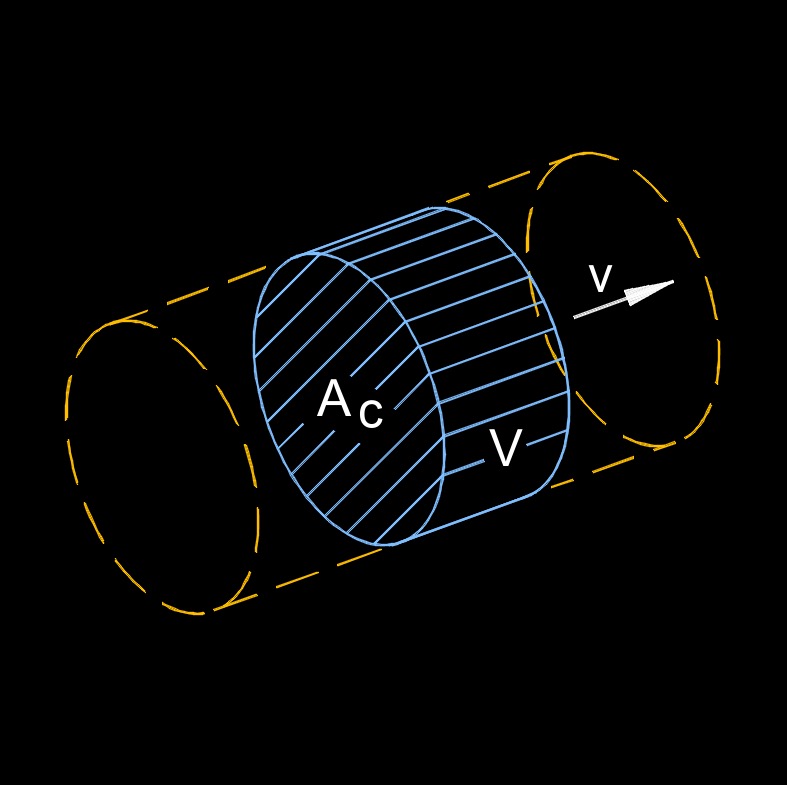Fluid Velocity
Fluid Velocity Formula |
||
|
\( v \;=\; \dfrac{ Q }{ A }\) (Fluid Velocity) \( Q \;=\; v \cdot A \) \( A \;=\; \dfrac{ Q }{ v } \) |
||
| Symbol | English | Metric |
| \( v \) = Velocity | \(ft\;/\;sec\) | \(m\;/\;s\) |
| \( Q \) = Volumetric Flow Rate | \(ft^3\;/\;sec\) | \(m^3\;/\;s\) |
| \( A \) = Area | \(ft^2\) | \(m^2\) |

Fluid velocity refers to the speed and direction of movement of a fluid (liquid or gas). It is a vector quantity, meaning it has both magnitude (speed) and direction. In fluid dynamics, the velocity of a fluid at a particular point is represented by a velocity vector, which specifies the speed and direction of the fluid at that point. The velocity vector can be broken down into its components along different axes.
Understanding fluid velocity is useful in various applications, including fluid dynamics, aerodynamics, hydraulics, and meteorology. Engineers and scientists use information about fluid velocity to analyze and predict fluid behavior, design efficient systems, and study phenomena such as turbulence, flow patterns, and pressure distributions.

